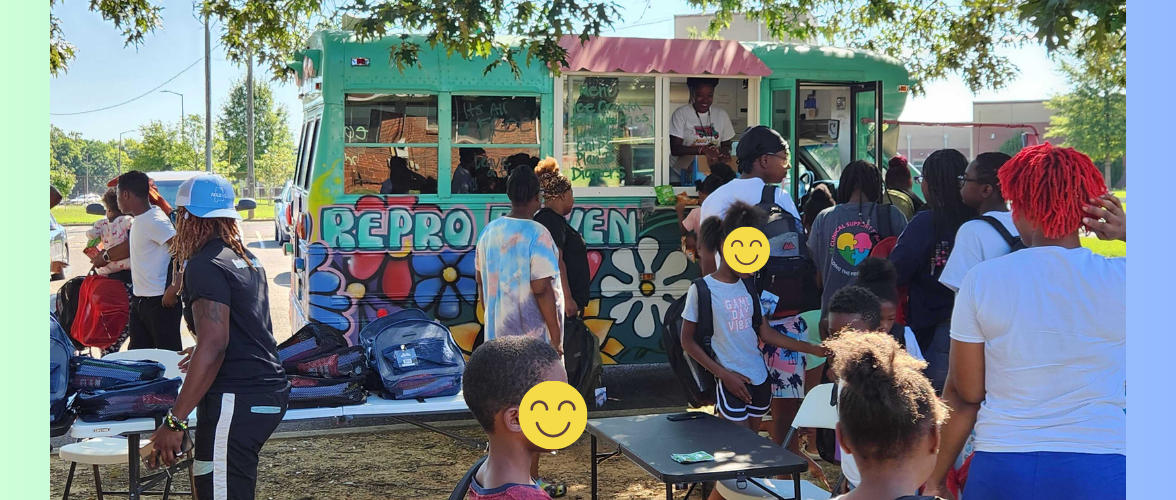Our Programs

Yellowhammer Fund is a reproductive justice organization dedicated to ensuring all people have the ability to decide when and how to build their families, regardless of race, income, location, age, gender, sexuality, disability, documentation status or number of children. As such, we offer the following supports to those in Alabama and the surrounding region:
We are currently suing Alabama’s Attorney General Steve Marshall for the right to assist and fund abortion patients seeking care in legal access states. We never gave up on funding abortions after Roe was overturned, and we turned our focus to protecting our ongoing clients and services and expanding our reach to better meet people where they’re at. Our current programs focus on preventing unintended pregnancies and supporting those who are pregnant and/or already parents, especially knowing how many more Alabamians need care and resources post-Roe.
Our current programs are as follows:
Free Emergency Contraception by Mail Program: We ship Emergency Contraception (EC) and safer sex supplies by mail for FREE to residents of Alabama, Mississippi, and the Florida panhandle west of Tallahassee. Yellowhammer Fund’s FREE safer sex kits include Emergency Contraception, condoms, pregnancy tests, ovulation test strips, lube, and First Amendment protected information on how to access abortion care to give our clients more autonomy over their bodies and their futures. Our EC program serves marginalized folks on a few levels by erasing: barriers to cost, need for transportation to a store, and having to request the EC from a pharmacist. We have now distributed over 30,000 doses of EC since March of 2020. For Emergency Contraception, click here. For any other assistance, contact us here and we will get back to you as soon as possible.
Family Justice: We work to address the needs of marginalized folks who are already parents or about to become parents in the following ways:
- We help facilitate community baby showers, back to school backpack drives, direct aid pop-ups in low-income neighborhoods, and annual holiday drives providing presents to families in need.
- We are fiscal sponsors of Margins: Women Helping Black Women – a Birmingham, AL based organization founded by Yellowhammer Fund’s Executive Director Jenice Fountain. Margins supports clients year-round and is currently maintaining multiple free food pantries in low income communities.
We address period poverty and the constant need for diapers and other essential material and household items.
- In Alabama, the average monthly supply of diapers costs approximately $80 and the cost of infant care as a percentage of income is 36% for a single parent household.
- Alabama is one of 30 states that taxes period products and “1 in 5 women and girls between the age of 12 and 44 lives below the Federal Poverty Line” in our state, according to the Alliance for Period Supplies.
Material Support and Assistance for Low-Income Families in Need: Yellowhammer Fund is supporting families in need and addressing childhood poverty in the state of Alabama through our Family Justice program, which offers material support to pregnant and parenting people. We have partnered with Margins: Uplifting and Strengthening Black Parents in Birmingham, The Knights and Orchids Society (TKO Society) in Huntsville and Selma, and Mississippi Reproductive Freedom Fund in Jackson, MS to ensure that material goods such as diapers, food supplies, school supplies, period products, over the counter medications, cleaning supplies, hygiene products and other items are available to families regardless of their location or income level. We believe that all people deserve access to basic necessities in order to remain safe and thrive as a family.
Legal Defense: As a reproductive justice organization, we at YHF are dedicated to supporting all pregnancy and parenting decisions, including the right to parent. Unfortunately, we are seeing more and more instances where pregnant people and parents are being incarcerated due to the criminalization of drug use, loss of pregnancy, and more.
Between 2006 and 2015, 479 people living in Alabama were prosecuted for using drugs while pregnant. Alabama prisons are overcrowded and access to quality food, exercise, and the health care and resources necessary to manage a pregnancy are not available. Chemical endangerment laws also contribute to Alabama’s high rates of maternal and infant mortality, because, rather than deterring drug use during pregnancy, these laws scare those who use drugs from seeking addiction care, prenatal care, and resources to manage their pregnancy. Putting folks behind bars instead of providing them with resources only hurts families and children and that’s why part of our Family Justice program at Yellowhammer Fund has been legal defense work.
Policy Advocacy: We utilize advocacy forms, targeted emails, social media, virtual and in-person events, and our website to carry out our policy advocacy work and get our supporters involved in the political process beyond voting. In 2021 and 2022 we fought harmful anti-trans legislation, a proposed abortion pill ban, and a bill that attacked our right to protest. We supported pregnant workers’ rights, and advocated for the Women’s Health Protection Act which would bring an end to nearly all of the obstacles that people needing abortions currently face.
Our brand new mobile unit, the Repro Raven bus:
- Yellowhammer Fund recently purchased a bus and is taking it on the road across the state of Alabama!
- The bus serves as a mobile unit for supply distribution of reproductive health items such as Emergency Contraceptives, condoms, pregnancy tests, period products, diapers, and more.
- Yellowhammer Fund’s goal is to increase access to our services and to make sure that Alabamians know about YHF as a resource, especially now that it’s been over a year since Roe v. Wade was overturned and abortion became illegal in Alabama and most of the South.
- Yellowhammer Fund is collaborating with allied organizations doing work on the ground at each of the tour stops.
- We know that people who live in the communities they serve know what their neighbors need and most importantly, have that mutual trust established.

